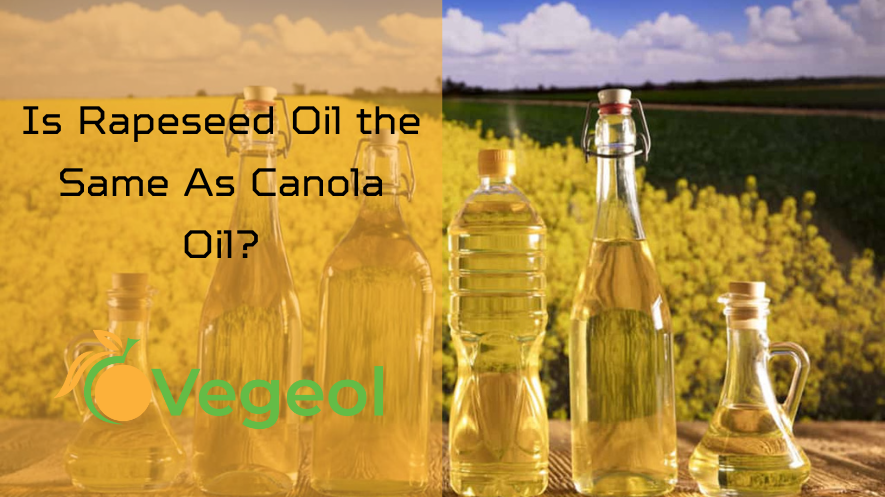The Benefits of Smoke Point Canola Oil
If you’ve ever cranked the heat on your stove so high that a pool of butter or cooking oil starts smoking, you know that the fat has reached its smoke point. Heated past this point, oils and fats break down and produce toxic compounds.
Unrefined nut, seed and olive oils have low smoke points and should not be heated beyond 225 degrees F. Other oils with moderate smoke points can be used for sauteing, frying and stir-frying.
High in Omega-3 Fats
Unlike saturated fats that raise cholesterol, unsaturated fats reduce it. They also lower blood pressure, bad cholesterol and inflammation levels, help maintain healthy cell walls and are known for their anti-inflammatory properties. The DGA recommends replacing saturated fats with cooking oils high in Omega-3 fatty acids, like canola oil.
The smoke point of an oil is the temperature at which it begins to break down, producing potentially toxic compounds that can alter the taste and flavor of your food as well as damage your health. It’s important to avoid heating any cooking oil above its smoke point because doing so will cause it to deteriorate, releasing potentially harmful substances into your food as well as damaging your kitchen appliances and creating toxic fumes.
Canola oil has a high smoke point, so it holds up to high heats such as sauteing and frying. It’s a good choice for stir fry or pan roasting, as well as baking and air-frying. Other high smoke point oils include avocado oil, grapeseed oil and rapeseed oil.
Olive oil, while not having a high smoke point, is a great choice for low-heat cooking and for adding to salads and dishes as a finishing or drizzling oil. It’s also a source of monounsaturated fats, which are considered “healthy” because they can help reduce your LDL (bad) cholesterol levels and improve your overall heart health.
Another great option for low-heat cooking is rapeseed oil, which is made from the seeds of the rape plant that would otherwise be discarded in the wine making process. It has a lower omega-3 to omega-6 ratio than most other oils (1:4 or less), which can help reduce inflammation in the body.
Other healthy oils that can be used in place of a smoke point-increasing cooking oil are coconut, sesame and sunflower oils. These are heat-tolerant oils that are nutrient dense and high in antioxidants. They may be a little more expensive than canola or other vegetable oils, but they’re also non-GMO and made with minimal processing. They’re also a source of medium chain triglycerides, which are good for the heart.
Low in Saturated Fats
Unlike other cooking oils, canola oil is low in saturated fats and it contains the omega-3 fatty acid alpha-linolenic acid (ALA). ALA helps lower cholesterol levels. Canola oil is also high in heart-healthy monounsaturated fats. Several studies show that replacing saturated fats with canola oil can reduce your risk of heart disease, according to the FDA.
Despite its low saturated fat content, canola oil has a fairly high smoke point and is ideal for sauteing, frying and baking. Its high heat tolerance makes it a good choice for stir-frying Asian cuisine and deep-frying comfort foods like French fries or chicken nuggets.
The oil’s smoke point is the temperature at which it starts to degrade and release harmful byproducts into the food and air. The smoke point of cooking oil can vary widely, from nearly unheated to highly heated. Depending on the temperature range you cook at most, you will want to choose cooking oils with a high smoke point and thermal stability, such as Zero Acre oil.
Seed oils are commonly used in cooking, but many have a relatively low smoke point, making them less suitable for high heat cooking. These oils can produce unhealthy trans fats if heated too much. If you are going to use a seed oil for high-heat cooking, make sure it is expeller-pressed and non-GMO.
Another option for high-heat cooking is olive oil. It is high in monounsaturated fats and antioxidants, which can help protect the heart. It also has a low omega-6 to omega-3 ratio, which can help lower cholesterol levels. However, olive oil has a low smoke point and is not suitable for high-heat cooking such as frying.
Low in Cholesterol
The type of oil you choose to cook with has an important impact on your health. The smoke point of a cooking oil refers to the temperature at which it begins to break down and produce unsavory flavors. Oils with a higher smoke point can withstand high heat, making them ideal for roasting, baking, sauteing and frying.
The canola oil most often found in grocery stores is highly refined and may contain genetically modified organisms, or GMOs. It also contains a significant amount of omega-6 fats, which can contribute to inflammation if consumed in excess. Choosing organic cold pressed, expeller pressed or extra virgin canola oil is one of the best ways to ensure that your food hasn’t been exposed to any chemicals during manufacturing.
Canola oil is low in saturated fats and trans fats, and it’s also a good source of omega-3 fatty acids. Regular consumption of canola oil has been linked to a lower risk for heart disease and improved cholesterol levels.
When selecting an oil, it’s important to consider its smoke point and cooking method as well as taste and nutrition. A smoke point indicates the temperature at which a fat will begin to break down and oxidize, which can negatively impact flavor and nutrition. Oils with a high smoke point are best for high-heat cooking, such as roasting or frying, while those with a lower smoke point make excellent finishing oils or dressings.
Cooking with an oil that has a high smoke point can help minimize the amount of oxidized fat in your food. An oxidized oil can have unpleasant, rancid flavors and increase your risk for cardiovascular disease by raising your cholesterol levels.
When choosing an oil for high-heat cooking, select a refined canola or vegetable oil with a smoke point between 400 and 475 degrees Fahrenheit. Refined sunflower oil, safflower oil and corn oil also have high smoke points, making them great options for frying foods. Other healthy options for frying include peanut oil, which has a mild, nutty flavor and a high smoke point, and sesame oil, which is stable at high temperatures and has a delicious toasted aroma.
High in Antioxidants
Canola oil is high in antioxidants, which help protect against oxidation of the fats and reduce the formation of free radicals. This helps extend the shelf life of the product and improves its nutritional value. It also has a mild flavor that works well with other foods, making it easy to add to most recipes.
Canola oil has a wide range of applications, from salad dressing to sauteing and baking. It is also a good choice for deep frying, as its high smoke point allows it to withstand higher temperatures than other oils.
However, some research has linked canola oil to inflammation, and it may even decrease memory and heart health. Until larger, better quality studies are done, consider replacing it with heat-stable cooking oils that have been shown to be beneficial.
Oils are composed of molecules called triglycerides, which consist of glycerol bonded to three fatty acids. Their smoke points are determined by the temperature at which these fatty acids vaporize and react with oxygen in the air. Once this reaction occurs, the triglycerides begin to break down, which degrades the nutrition and flavor of the oil. Antioxidants, which are naturally found in many oils, help prevent this oxidation.
Regular canola oil has a high smoke point of about 450 degrees Fahrenheit, while high-oleic canola oil can withstand temperatures up to 475 degrees Fahrenheit. Other oils with high smoke points include olive, avocado and peanut oil.
The most heat-stable oils are those that contain mostly monounsaturated fatty acids, which are less prone to oxidation than polyunsaturated fatty acids. Olive, peanut and sunflower oils are good choices. They are rich in the omega-3 fatty acid, which has been linked to lower cholesterol levels and improved heart health. Additionally, they have high amounts of vitamin E and other nutrients. Other good options are safflower, sunflower and sesame oil.


